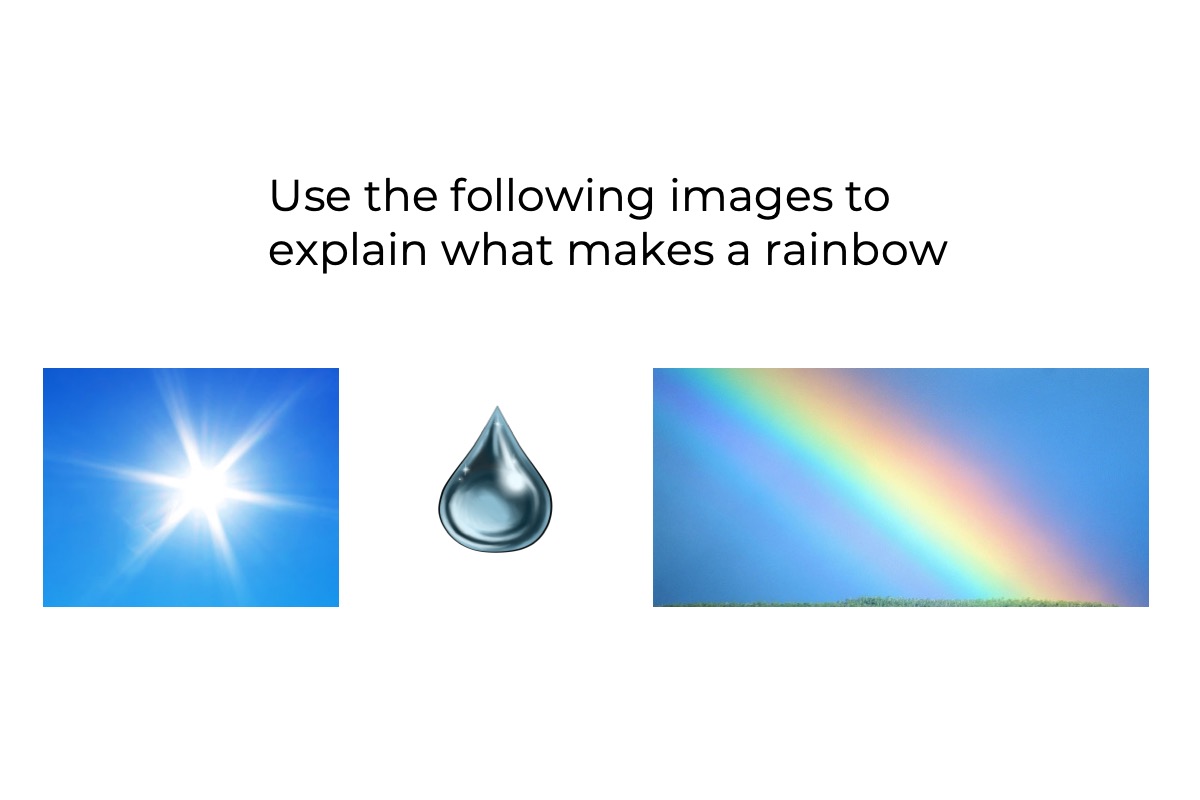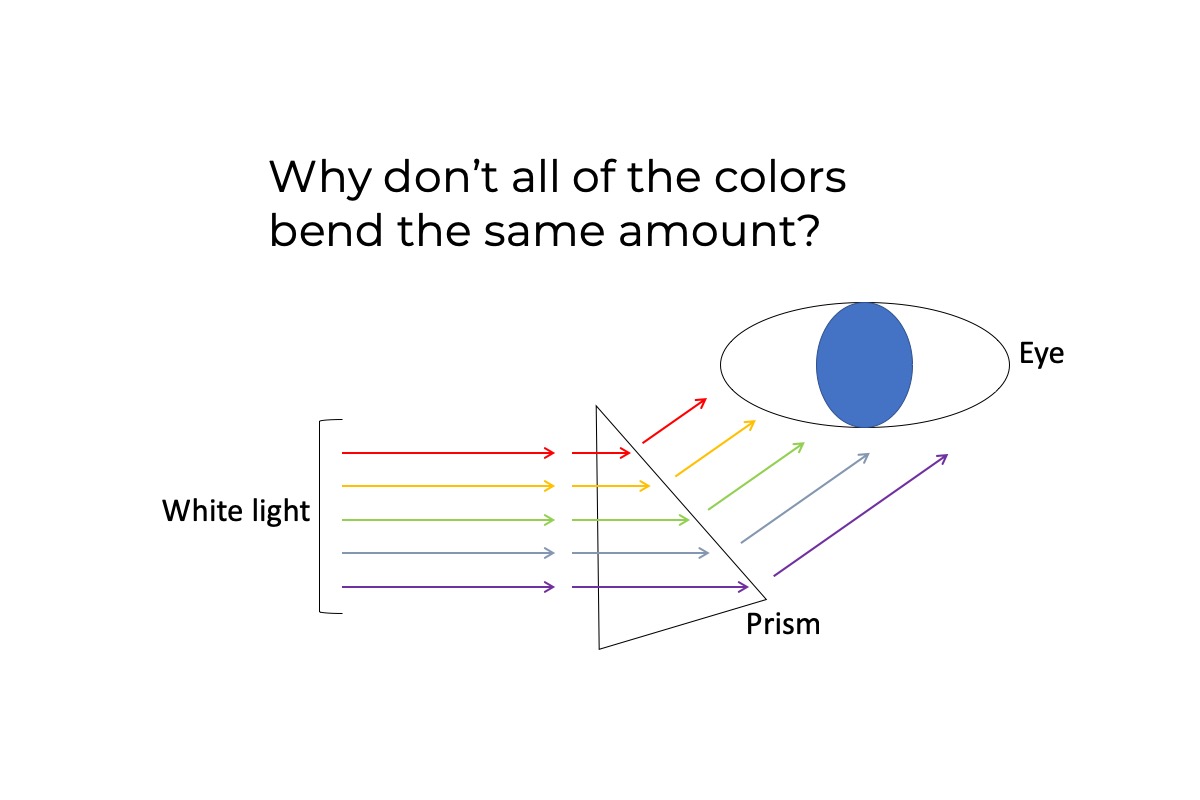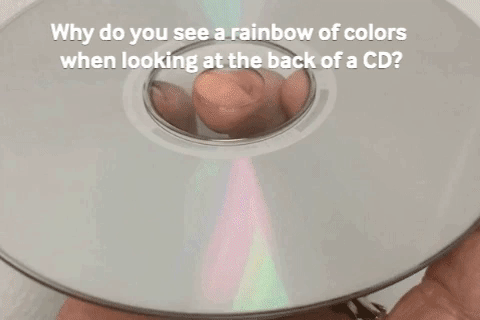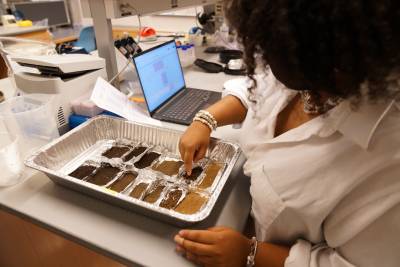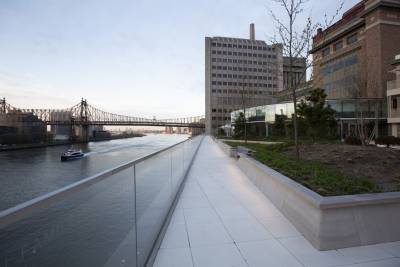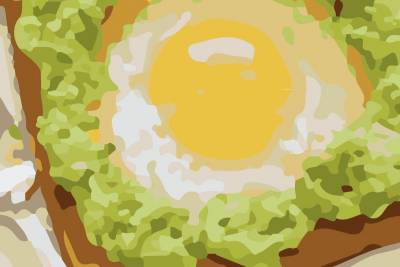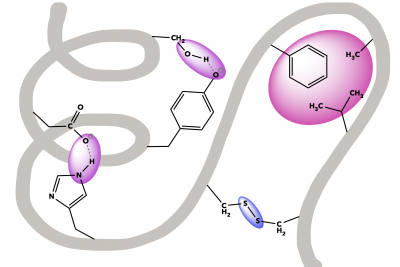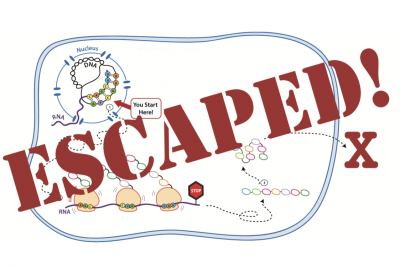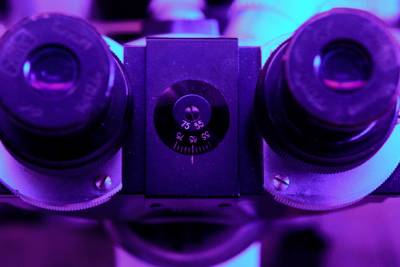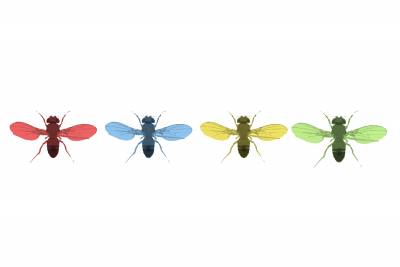How Are Rainbows Formed?
Background: Dispersion
Different wavelengths on the electromagnetic spectrum correspond to different colors, and as a prism breaks the white light down into its individual wavelengths, we can perceive the individual colors. This process of breaking light down into wavelengths is also called dispersion.
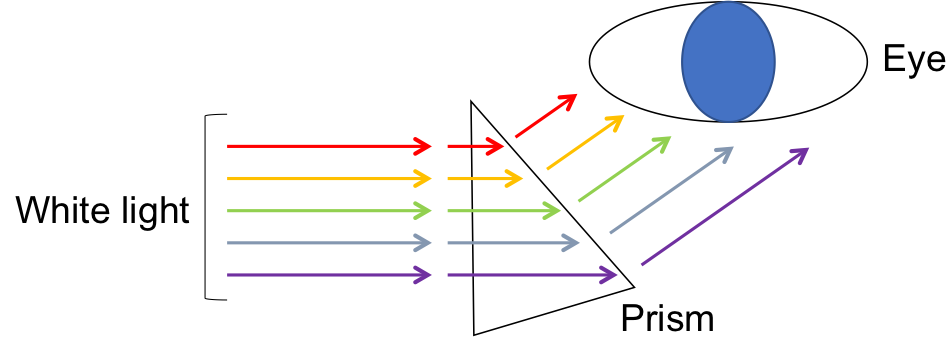
Dispersion happens when the light leaves a prism at a different angle than it enters, and the angle of dispersion depends on the wavelength: shorter wavelengths change their angle more than longer ones. This change in angle is enough for our eyes to notice the difference between different colors.
Materials
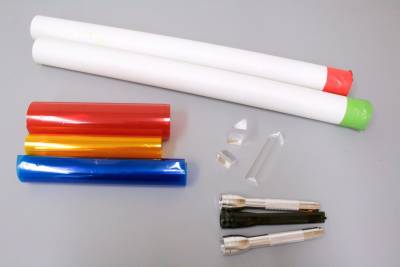
Corner Store Materials
- three flashlights
- three cardboard tubes e.g. poster tubes or wrapping paper tubes
- red, yellow, and blue cellophane
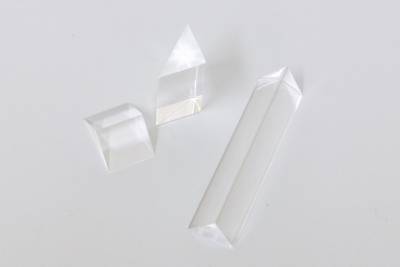
Laboratory Supplies
- prism
Experiment 1
Shine the light through the prism onto a piece of white paper. You may need to focus light by poking a small hole into a piece of cardboard with a pin and shining the light through it before it hits the prism.
What do you see happening to the light?
Experiment 2
- Cover one end of the three tubes (can use e.g. rolled up black cardboard) with translucent yellow, red, or blue cellophane. Keep the celophane in place with a rubber band.
- Hold the flashlight up to the open end of the tube (so the light shines down the tube and then through the cellophane) and pointing towards a white surface like a wall or ceiling.
What color light shines through each tube? Is this what you’d expect?
- Now combined the light circles.
What do you see when you combine the light circles? Explain.
Application
Knowing what happens when light from a flashlight shines through a prism, can you explain how a rainbow is formed?

